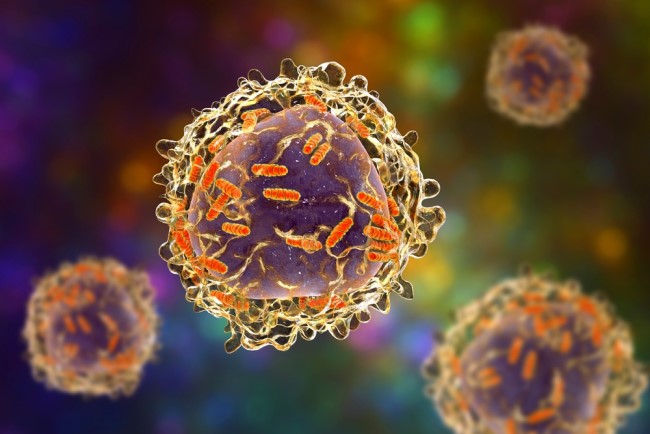Manufactured stem cells could help to treat blood cancers in the future
Published: 6 October 2024
A cross-disciplinary team, led by the University of Glasgow, will use pioneering technology to manufacture human stem cells outside the body, in the hope these cells could help tissue regeneration to repair broken bones, help with transplant therapies and help to develop new approaches to blood cancer treatment
A cross-disciplinary team, led by the University of Glasgow, alongside the Universities of Nottingham and Strathclyde, will use pioneering technology to manufacture human stem cells outside the body, in the hope these cells could help tissue regeneration to repair broken bones, help with transplant therapies and help to develop new approaches to blood cancer treatment.
The new project is made possible with £11m, awarded by the UKRI Engineering and Physical Sciences Research Council (EPSRC) as part of funding for five new research hubs aimed at tackling some of the biggest problems in healthcare and society with groundbreaking new technologies and approaches.

Led by Professor Matthew Dalby from the University’s School of Molecular Biosciences, the MAINSTREAM project, which further benefits from £1.5m in partner (industry) contributions, will be a research and partnership hub for health technologies in manufacturing stem cells.
Mesenchymal stromal or stem cells (MSCs) are adult stem cells that can turn into bone, cartilage, ligament, tendon and fat-forming cells, with far-reaching potential, including tissue regeneration to repair broken bones. These cells can also be used as a drug to prevent transplant rejection as they work to supress immune response, while their role in the development of blood cancers means they have potential to complement chemotherapy in regenerating healthy bone marrow and looking after healthy blood cells provided by bone marrow transplants.
Despite their massive potential in healthcare provision, and the fact that the first MSC-based clinical trial took place more than 25 years ago, MSC therapies are still not commonly used. This is due to the difficulty in growing these stem cells outside of the body, meaning only relatively few can be grown from each donor which keeps their price high and prevents production from being scaled up.
The MAINSTREAM project aims to address this problem through the development of new materials that MSCs can grow on in the laboratory (or, ultimately, in a factory) and can help them to retain their key stem cell characteristics, enabling them to be manufactured in large numbers. The research team will achieve this by developing novel materials that can mimic the areas of the human body these stem cells grow in naturally, to allow produce a large number of cells in the laboratory. The team will then identify how to scale-up the technology, using approaches such as 3D printing, to allow future medicines to be manufactured affordably and sustainably. This will allow factory based stem cell manufacture.
Professor Matthew Dalby said: “Stem cell manufacture can only successfully be achieved if we consider the development of materials that they can grow on and that ‘tell’ them what we want them to do at the same time that we consider how to manufacture the materials at scale. Otherwise, we would have the risk that we would make great materials that can’t be manufactured or manufacturable materials that just don’t work for the cells.
“The hub allows us to use the best of the national infrastructure to achieve this as well as work closely with industry, the NHS and, critically, with patients and the public. The team are fantastically fortunate to have the investment to make sure the UK is a leader in driving industry in this area.”
UK Science Minister, Lord Vallance, said: “These innovative technologies have the potential to improve patient care in the UK and around the world. By investing in this research, we are enabling scientists to develop life-changing technologies.
“By working closely with patients, healthcare professionals, engineers and industry partners, these advances can be translated into practical solutions that will improve the lives of people with age-related mobility issues, cancer, and other chronic conditions."
EPSRC Executive Chair Professor Charlotte Deane said: “The five new hubs bring together a wealth of expertise from across academia, industry and charities to improve population health, transform disease prediction and diagnosis, and accelerate the development of new interventions.
“They represent an exciting range of adventurous techniques and approaches that have great potential to improving the lives of millions of people here in the UK and across the world.”
Enquiries: ali.howard@glasgow.ac.uk or elizabeth.mcmeekin@glasgow.ac.uk
First published: 6 October 2024
<< MVLS News

